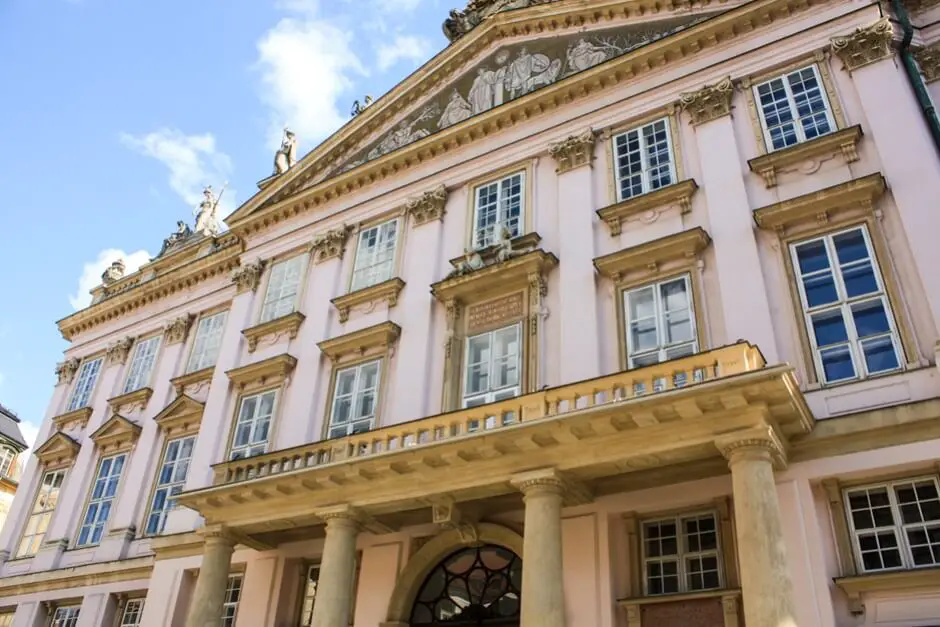Extraordinary Quebec City Tour of Quebec's Religious Heritage
Thanks to Monika's in-depth knowledge in the American cultural history, complemented by her diverse experiences as a tour guide in Quebec City, we developed a deeper interest in Quebec's religious heritage. That was the reason for our rather unusual Quebec City sightseeing to the city's schools, churches and monasteries. Located on the majestic St. Lawrence River, Quebec City served as a launching point for French colonists in North America.
This city was important not only for the fur traders who ventured inland from here, but also for the missionaries who traveled to spread their religious beliefs. After the historic Battle of the Plaines d'Abraham and the victory of British forces over the French, the British established themselves in Quebec City. With their arrival, they introduced new religious traditions that enriched the city's already diverse religious spectrum. This cultural and religious melting pot left a lasting impression on Quebec City and continues to contribute to its unique character today.
Quebec City Sightseeing of Quebec's religious heritage
Religion has always been central to Old Quebec, the city's historic core that rises above the St. Lawrence River on Cap Diamant. This importance is rooted in the city's early history as one of the first centers of French colonization in Canada. In 1608, Samuel de Champlain laid the foundation for Quebec City by building a palisade fort at the foot of this steep cape, at a strategic point where the river opens to the Atlantic Ocean. Because we want to find out more about it, we take a tour that is specifically dedicated to Quebec's religious heritage. This tour allows us to explore the city's deep religious roots and their impact on Quebec's development and social fabric up to the present day.
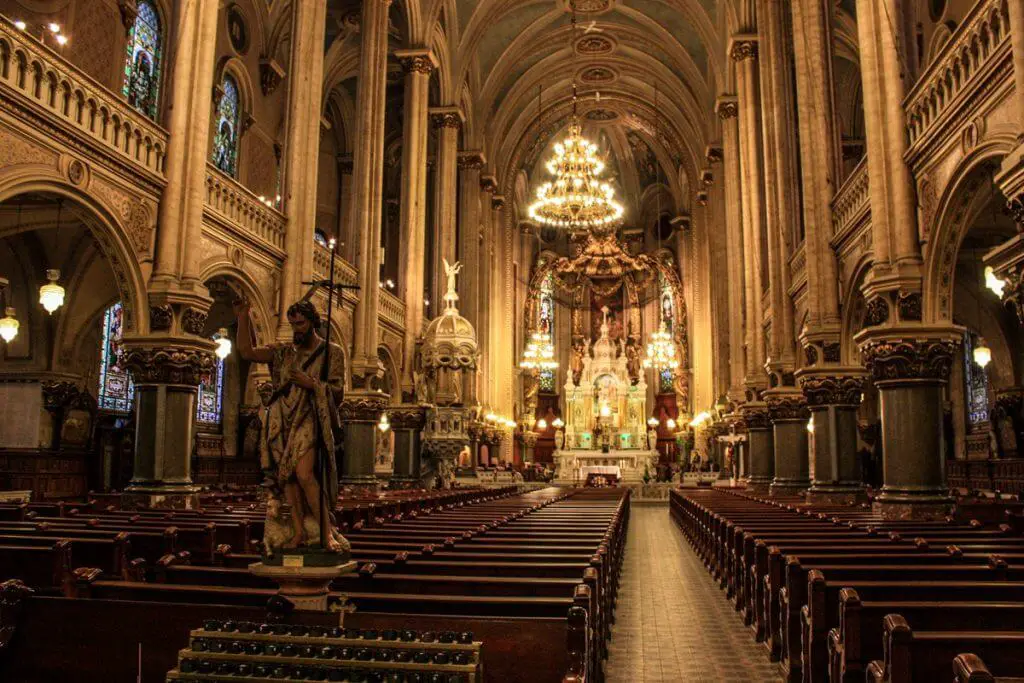
The early settlers of Quebec City
During the warm summer months, the St. Lawrence River provided an easy access route for the ships from France that brought increasing numbers of people to Canadian territory in the early years of New France. The aim was to develop and settle this area in the name of the French crown. As a result, the newly founded city experienced rapid growth. Initially, the majority of settlers were men willing to accept the risks and challenges of life in the New World. However, the French authorities soon realized that the success and sustainability of the settlement projects in Canada depended largely on creating a more balanced population structure by specifically encouraging women to emigrate. This strategic approach aimed to lay the foundation for stable and lasting settlement communities.
And so, over time, Quebec City became a reflection of French society as it existed in Europe - including all the facilities that existed in the French homeland.
Religious orders ensured a regular life in Quebec
In the French colony of New France there were mainly two groups that had a significant impact on social and political life: the soldiers and the clergy. Church representatives, working closely with administrative officials, had the role of establishing structure and order in the colonists' daily lives. This historical significance of the church is still clearly visible in today's Quebec City. Many of the architecturally impressive buildings that tower majestically over the St. Lawrence River are the legacy of religious orders. They not only built physical structures, but also sought to consolidate and expand their spiritual and cultural influence. A walking tour of Old Quebec City allows visitors to understand the church's impact on Quebec's history and cityscape.
Schools lead religious orders in Quebec City
The church continues to play a defining role in Quebec's education system to this day. Historical educational institutions that opened their doors in the early days of the city of Quebec are still dedicated to their original purpose today. An example of this is the Ursuline girls' school on Rue Donnacona. This institution has its roots in the New France era when it took on the task of teaching settlers' daughters and local Indian girls skills that were expected of women at the time. These skills included housekeeping, sewing and raising children.
Just a few hundred meters away is the Seminaire de Quebec, another important educational institution that originally trained priests for the colony. This historic building also continues to contribute to the educational landscape today and houses parts of Laval University and the College Francois de Laval. These institutions exemplify the ongoing connection between ecclesiastical tradition and modern education in Quebec, a legacy that has had a lasting impact on the city's cultural and social development.
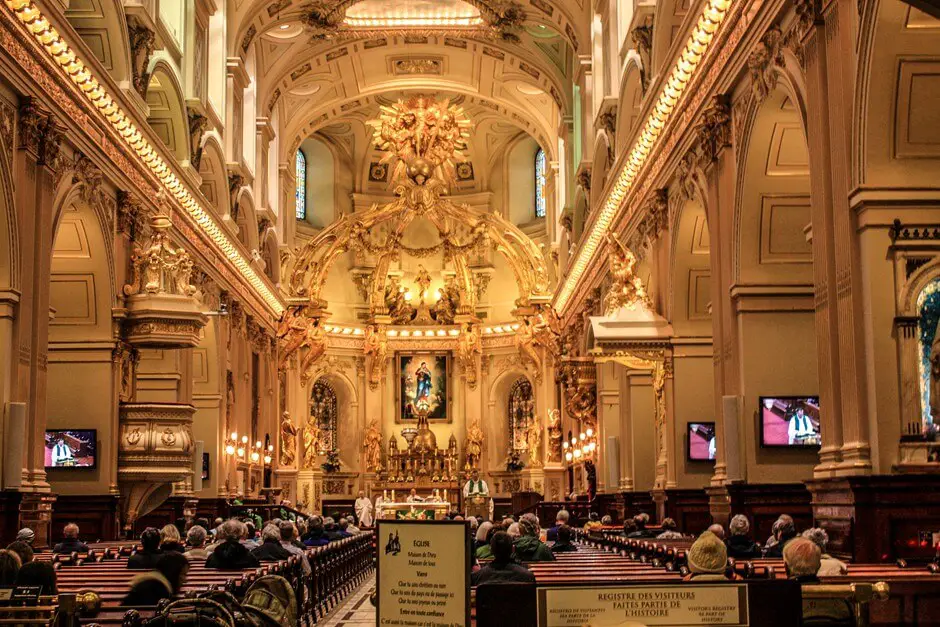
Churches bear witness to Quebec's religious heritage
A tour of Quebec City quickly shows visitors the city's diverse Christian faith landscape, which is reflected in the number and diversity of its church buildings. In the immediate vicinity of the aforementioned Ursuline Girls' School rises the Anglican Cathedral, a building that symbolizes the profound English influence on Quebec City. Just a stone's throw from the Seminaire de Quebec is the Basilica of Notre Dame de Quebec, which, as the city's Catholic cathedral, is not only a central place of worship, but also a historical and cultural landmark. This constellation of church buildings from different denominations highlights Quebec's cultural diversity, which has developed over centuries.
Various denominations are Quebec's religious heritage
There are also churches and houses of worship in Quebec City that provide a home for other religious communities such as Presbyterians, Episcopalians and Unitarians. A visit is not only worth it because of its architectural beauty. They also offer deep insights into the city's historical and cultural development. The Notre Dame des Victoires church, for example, located on Place Royale in the Lower Town of Quebec, takes its visitors back to the 18th century and brings the past to life. The opulent interior of the Saint Jean-Baptiste church on Rue St. Jean offers a contrast. Located off the beaten tourist path, this church is worth a visit for anyone who wants to explore Quebec's cultural and spiritual heritage more deeply.
Quebec City sightseeing on religion in today's Quebec
We ask Steeve, who accompanies us on our walk through Quebec's religious past, why the Sunday mass we witness in the Notre Dame Basilica is so sparsely attended.
His answer shows how strong the church's influence on events in Quebec has been until recently. “Quebec Catholics used to be very religious. Back then, churches were filled to capacity on Sundays. However, that has changed with the political developments of the last few decades. The Catholic Church insisted on maintaining traditional traditions and spoke out against political changes. This led to Quebecers falling behind over time in the country's overall development. When they realized this, they turned against the church. This eventually went so far that Christian terms were used as insults in many families. Today you almost only see old people in the churches.”
Steeve himself likes to go to church. But he does it simply because it is a place where it is good to think and meditate. Religious motivation hardly plays a role for him either, as he assures us.
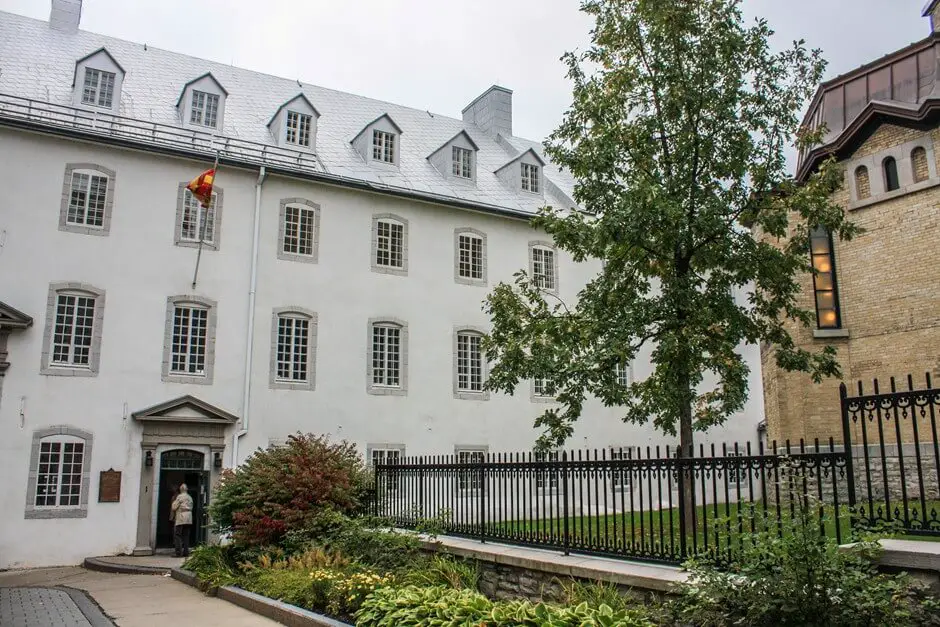
Quebec's religious heritage is monasteries and orders
In the past, Jesuits, Recollects and Ursuline Sisters played a role in Quebec City's social and cultural life. The presence of these church communities can still be felt in the old town today. The Ursuline Monastery is still located at its location and continues its long tradition. Nuns still teach girls in the traditional school on Rue Donnacona. The Jesuits also continue to be active in the Seminary de Quebec and make an important contribution to education. A walk through Old Quebec offers insights into the roots of religion in everyday life in Quebec City.
Quebec City sightseeing through the Old Quebec on the traces left by Quebec's religious heritage is interesting. You can also easily include it on a tour of Eastern Canada.
Book a tour on this topic here*
Have you been to Quebec City?
Would you be interested in a tour like this that takes you deeper into the history of the city? Have you perhaps taken a special tour of Quebec City yourself? Or do you have other tips and recommendations that you discovered during your visit to Quebec City? Then let us know in the comments to this blog post. Our readers will definitely appreciate your tips.
Further sources on Quebec's religious heritage:
- Urban Governance in French Colonial North America: Hospital Care in Quebec City and New Orleans in the 17th and 18th Centuries
- The conversion of the world*: A History of Christian Mission in Modern Times
- Shamans and missionaries*: Catholic mission and indigenous spirituality in Nouvelle-France
If you purchase via a link marked *, we receive a commission, which we use to run this blog.
Travel Arrangements:
Parking at the airport
Here you can reserve your parking space at the airport.
Getting to Quebec City Sightseeing:
For example, book yours here Arrival by plane, bus or train*. Quebec City has its own airport. From there you can then continue your journey by rental car or public transport.
Car Rentals:
Cheap car hire - book quickly and easily!
Hotels:
Accommodations in and around Quebec City * You can definitely book through our partner booking.com. One Accommodation in Quebec City for slow travelers However, you can find it here.
Excursions in and around Quebec City:
There is much, what to do in and around Quebec City *. For example, you can book your excursions, city tours and city passes online through our partner Get Your Guide.
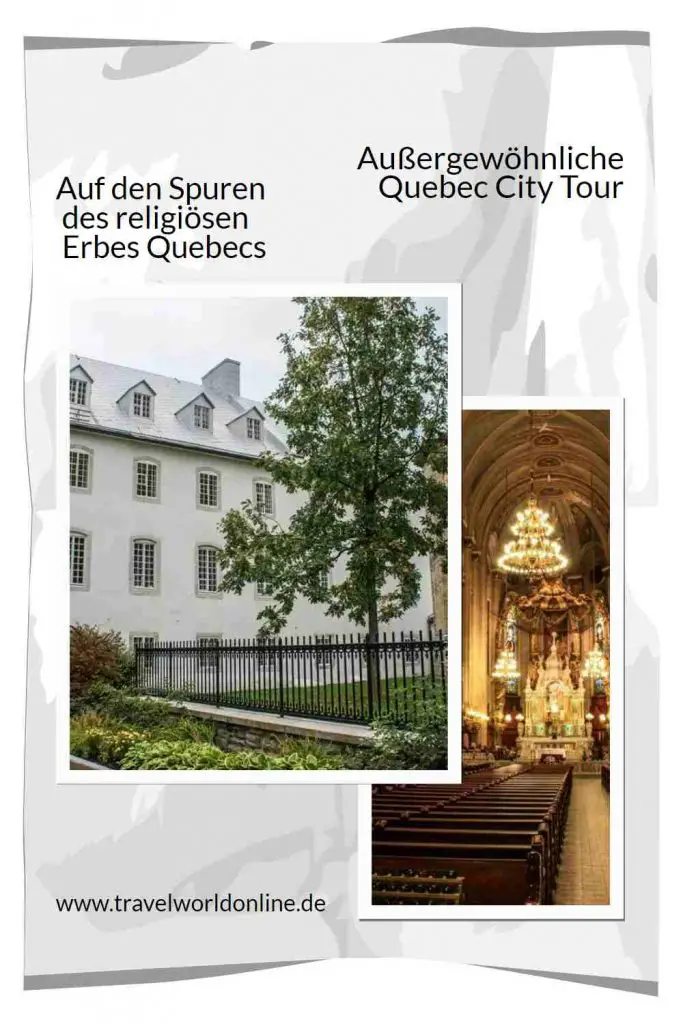
Do you know anything else?
- In Quebec City, history is not far away
- Old Quebec: a journey into history and culture
- Chateau Frontenac Hotel, Quebec
- Eating out in Quebec, Canada
- Quebec Attractions
- Saint John's Newfoundland – the capital of the island
- Montreal's maritime heritage on the St. Lawrence River
- Kazan attractions
- Which rain jacket is the best?
- Luxembourg Specialties
- Austria summer vacation
Source Quebec City Sightseeing: own research on site with the kind support of Bonjour Quebec. In any case, we would like to thank you for this opportunity to research. However, our opinions remain our own.
Text Quebec City Sightseeing: © Monika Fuchs and TravelWorldOnline
Photos: © Copyright Monika Fuchs and TravelWorldOnline
Video: © Copyright Petar Fuchs and TravelWorldOnline
